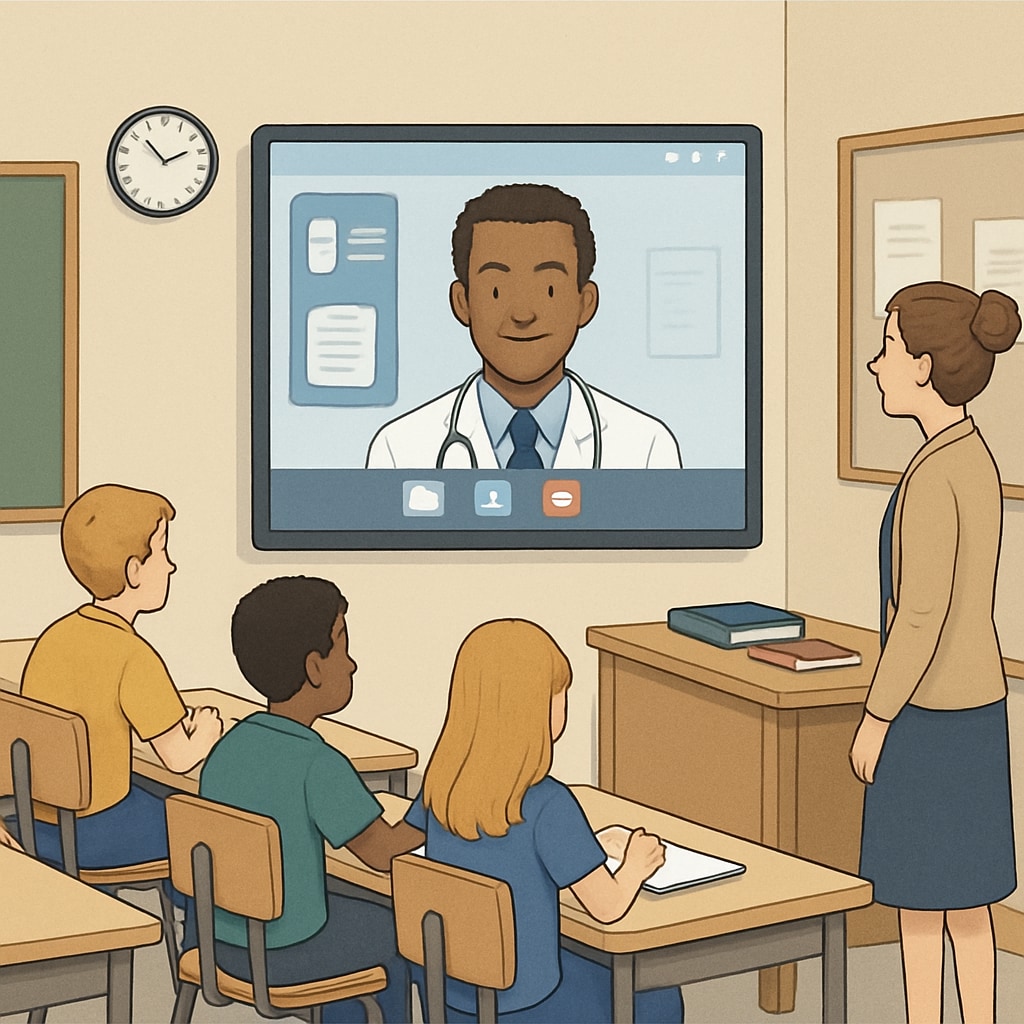Medical career interviews in K12 education are a powerful tool for inspiring the next generation of healthcare professionals. These projects encourage students to explore the field of medicine by interacting directly with doctors and other medical experts, fostering career awareness and the development of essential planning skills. By designing structured programs that bridge the gap between classroom learning and real-world applications, educators can empower students to make informed decisions about their futures.
The Importance of Medical Career Exposure in K12 Education
Early exposure to medical careers provides students with invaluable insights into the healthcare profession. For many students, the idea of becoming a doctor or healthcare provider remains abstract until they have the opportunity to hear firsthand accounts from professionals in the field. These interactions demystify the profession, offering practical knowledge about the daily responsibilities, challenges, and rewards of a medical career.
Moreover, such projects help students build soft skills such as communication, critical thinking, and professional etiquette. According to a Britannica article on education, experiential learning activities like interviews can improve student engagement and retention of information. In addition, these activities align with broader career readiness goals, making them an essential component of K12 education.

Designing an Effective Medical Career Interview Project
To maximize the impact of a medical career interview project, educators must carefully plan and structure the activity. Below is a step-by-step framework to guide the design and implementation:
- Define Objectives: Clearly outline the goals of the project, such as increasing student awareness of medical career paths or enhancing specific skill sets like interview techniques.
- Identify Medical Professionals: Reach out to local hospitals, clinics, or medical associations to connect with doctors and healthcare providers willing to participate. Virtual interviews can also broaden the pool of potential participants.
- Prepare Students: Offer workshops or lessons on how to conduct professional interviews. Topics may include crafting thoughtful questions, practicing respectful communication, and understanding medical terminology.
- Conduct the Interviews: Schedule interviews in a way that ensures each student has the opportunity to actively participate. This could include group or one-on-one formats.
- Reflect and Analyze: After the interviews, encourage students to summarize their learnings and reflect on how the experience influenced their career aspirations.

Guiding Students in Meaningful Interactions with Healthcare Professionals
For students to gain the most from their interviews, educators should offer guidance on how to approach and engage with medical professionals. Here are some practical tips:
- Encourage students to research the medical professional’s background and specialty beforehand to ask informed questions.
- Focus on open-ended questions that invite detailed responses, such as “What inspired you to pursue a career in medicine?” or “What challenges do you face in your daily work?”
- Remind students to actively listen, take notes, and express gratitude for the professional’s time and insights.
- Provide a template or framework for follow-up thank-you notes to reinforce the importance of professional courtesy.
By equipping students with these skills, educators can ensure that the interviews are not only informative but also transformative experiences. Additionally, these interactions may inspire students to explore specific medical fields or pursue extracurricular opportunities related to healthcare.
As a Wikipedia article on medical education highlights, early exposure to the medical field can play a pivotal role in shaping the career trajectories of aspiring healthcare professionals.
Conclusion: Inspiring the Next Generation of Healthcare Providers
Incorporating medical career interviews into K12 education bridges the gap between academic learning and real-world application. These projects not only enhance students’ understanding of the medical field but also equip them with critical communication and planning skills. By fostering direct interactions with healthcare professionals, educators can play a vital role in inspiring the next generation of doctors, nurses, and medical researchers.
Whether conducted in person or virtually, medical career interviews offer students a unique opportunity to explore their interests and make informed decisions about their futures. As a result, this innovative approach to career education is a valuable addition to K12 curriculum frameworks.
Readability guidance: The article uses short paragraphs, lists, and transitions to ensure clarity. Passive voice is minimized, and the content is optimized for readability and engagement.


